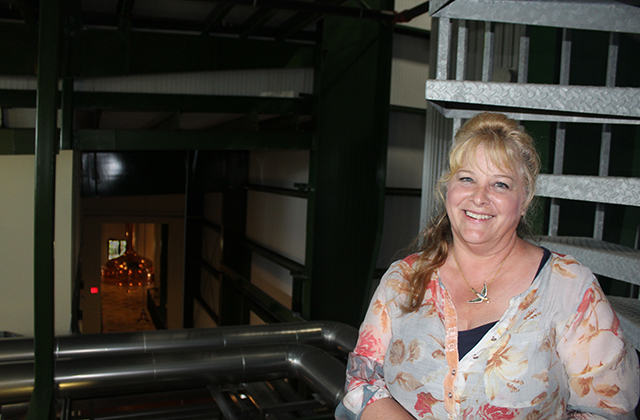
Growing to become the 16th largest craft brewery in the U.S. wasn’t exactly the plan in 1993 for Deborah Carey. When she and her husband, Master Brewer Dan Carey, opened New Glarus Brewing in the rolling farmland of southern Wisconsin all she wanted to do was make a living at around 8-10,000 barrels, while also serving the folks of New Glarus and Madison, Wisconsin.
“At [the original location of the brewery], I dealt with the wholesalers, the investors — I would take care of the bank stuff, the gift shops and host tours on the weekends,” Carey recalled. “People knew us and what we were about.
“This is not my nirvana. I didn’t grow up as a 10-year-old girl and want to run a brewery. I have a friend that owned a bakery at the time and she is telling me that I should quit and it was too much work for me. But she came down one weekend while I was giving tours and she said after she saw me on a tour that I couldn’t stop giving tours. People leave and they have become disciples after that. ‘You have to figure out a way to do this,’ she said.”
Carey found a way, now for nearly 25 years along with Dan as the Master Brewer. Although the brewery’s size has far exceeded expectations (now at 213,000 barrels and with a projected capacity of 400,000), the need to care for her New Glarus’ staff, the people in town, herself and her family is still the key for Carey.
“I have no doubt people look at the yearly sales numbers, see us and think it’s a typo. We must be in a hundred states to sell that much beer. No. I’m in one state,” Carey said of the ‘Only In Wisconsin’, branding. “There is a lot of beer consumed in every state. If you work hard and take care of your people the same thing can happen for you.”
The mentality is a bit different at New Glarus. The gift shop/taproom closes at 5 p.m. and the staff encourages people to buy New Glarus in the community instead.
“Many retailers have met me or they have been here. Same with consumers. We are here,” Carey said. “We talk to the people so they can have that relationship with the beer. And we follow it up with a great product and I have the wholesalers taken care of.
“My goal isn’t volume driven. It never has been. Never will be. I always say size is a guy thing. I do not understand why across the industry people will discuss percentages up and down and they never discuss how much more territory they have taken on and are they taking a profit with it. There are probably at least six to a dozen big breweries that are selling internationally. So of course they are up 20 percent in volume! They just added Czechoslovakia or all of the southern tier of states. I would hope someone is at least drinking that beer. Our growth has been very much about building relationships. It’s a longer, slower sell, it’s harder work and it’s not as glamorous.
“Even huge breweries, the vast majority of sales will be within a few 100 miles of their brewery, so why are people in 20 states, that’s the real question.”
At one point Carey added a recorded tour to help consumers learn about New Glarus. Now a weekly “hard-hat” tour with a brewer is the personal touch that helps connect with people.
“The stories aren’t the same as mine, they might be more technical now, but it’s the same thing: it’s transparent and real and people are hungry for things that are real and have integrity,” Carey said. “That’s what people want. Sure, I’ve heard that a TV or radio ad needs to be seen or heard 65 times for it to stick and that might be true, but that’s a lot of money to spend to make that happen. Instead of putting money into that, I’m taking that money and putting it into my people. There are tons of need in the area and we want to be generous.
“Taking care of people is the same. We stick together. Families come visit. The relationships are still here, it’s just on a big scale.”
Carey said there is a ton of opportunity just in her state of Wisconsin.
“The big breweries are hemorrhaging barrels. Hemorrhaging! AB and MillerCoors are losing like 90-100,000 barrels in sales every year in Wisconsin. That’s enough for me and 30 other breweries to grow,” Carey said. “The idea that I have to go add more states … people don’t want to dig in and have the tough discussions that are required with their wholesalers and retailers to gain space. It’s boring, it’s depressing. You go in and out of stores and you get the ‘Fuck you, get out!’ Who are you? How did you get your job? I don’t give a shit. or ‘Hey, another brewery that you have nothing to do with screwed me last week so get the fuck out of my store.’ It’s not fancy work.”
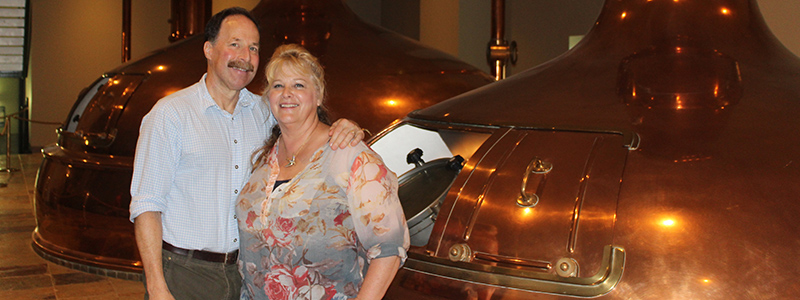
It’s the ‘dirty work’ that has helped New Glarus to the success that it has had in just one state. Today a consumer can go into almost any establishment and order the brewery’s flagship beer, Spotted Cow. Carey said it was so simple of a way to grow that she called the idea stupid. Hard work, but “stupid easy.”
The New Glarus brand did things that other breweries weren’t doing. It wasn’t always easy for Carey, and it still isn’t. She stressed building relationships with every tavern owner in the state. Be it a small corner pub full of working-class people all the way to the trendiest craft beer bars — it all takes hard work.
“There are tons of opportunities,” Carey said. “I don’t care about money, but I understand its value as a tool. My responsibility at this juncture is to make money so I can take care of my people. But we also have to make money for the retailer and wholesaler and show them where the profitability lies.
“Often, you don’t just go to the nice places to sell beer. You aren’t just going to the steak and escargot places. You go to all of them. There are $2/hour bartenders and people living on tips and I decided to dig in — that this is where my opportunity lies to change my corner of the world. I talk to them about everything: health insurance, benefits, hours, training and be encouraging with ideas of what works somewhere else and that resonates with people.”
Carey said New Glarus started the program 10 years ago about draft line cleanliness in the state of Wisconsin. “What are we going to do? Go create a law? Probably not, so I sent my guys to draft training school, then made sure they were good enough to train others and to run classes here,” she said. “Then we hunted down draft line cleaners all over the state to track them down and ask them what they are doing. We learned some of them were just recirculating water. We wanted to show them what chemicals to use and help them learn they can charge more for their services and how to change lines and help turn around draft lines better than they were.”
She noted that the brewery did a study with a wholesaler that bought a new territory and started a draft line service.
“We tracked sales before they cleaned their lines and after and took that info and shared it with the Brewers Association,” Carey said. “Now draft line cleaning is a part of presentations and our guys helped in that work to show that you can be more profitable if you clean your lines every two weeks. Then the investment per line is understood on how the money is made. It’s just stating the obvious, but it shows how you can give back to people. Not everyone does it, but you just need one person to do it for others to start talking about it.
“It was very organic growth and that’s a key to our marketing and it’s something that most people just miss. It’s not glamor work to go into a hardworking tavern owner where you are the 10th salesperson they have seen this week and try to pitch them about why they should do more work and spend more money. Not everyone has the balls to do that, but it works and it needs to be done.”
Carey pointed out that she is not pioneering any new ideas.
“A-B, Spaten, everyone started as a small brewery that wanted to make great beer for their community and then they grew. That’s what we are doing,” Carey said. “There is nothing new.
“Why are people building breweries across the country and then trying to chase sales numbers or go overseas? You don’t think they are selling beer in Germany or Belgium? And on the same way, breweries in Germany and Belgium are trying to sell beer in Wisconsin? OK. Bring it. That’s what I think. Beer should be local and have a terroir, just like wine or any other food. If you are in San Antonio, have some Tex Mex. When you come to Wisconsin, have a brat and some Spotted Cow. It doesn’t mean I don’t field questions on what seems like a 10-minute basis on if I can send beer to Texas. It doesn’t mean I can’t do it or I’m not bright enough to understand that I could sell more. But at the end of the day, is my goal to be big? No. That’s the definer of our success: make great beer and take care of our people around us. The end. That’s not what everyone else is in it for and I don’t understand why.”
The New Glarus staff of about 120 is mostly comprised of locals. Many employees get into their positions after a three-day paid trial run as a part of the hiring process. It was an idea that Carey took from Patagonia, the outdoor clothing company.
“That way the person knows what they are getting into and we get to see them working,” Carey said. “Some people are good at their job, but they just aren’t nice or a good person. But sometimes you find someone that has a great resume and a great talker but they don’t work for crap.”
The original location is still a part of the New Glarus facility. Now called “Riverside,” it houses the brewery’s sour and wild ale program along with some office space. The original system is still online and used to this day. In 2009, the brewery expanded to the “Hilltop” location, where a majority of production brewing is performed. A picturesque view atop a large hill outside of town, the Hilltop location looks like a small Swiss village from the outside, but inside it’s all business. Carey thought that Hilltop would be the end of the road for New Glarus. It’s been anything but.
Compassion for people struggling to make ends meet has made Carey sort of a political figure, for good or bad. In 2011 Carey was first runner up for National Small Business Person of the Year sponsored by the U.S. Small Business Administration. She was invited to Washington DC for a ceremony after winning the award in Wisconsin.
That award led to working with the Champions of Change group, which was created during the Obama Administration.
That’s about the time, even though she had been opened for nearly 20 years, that Carey started to ask herself if this was what she planned to do for the rest of her life.
“Now I was at first skeptical, because I am not a political party person,” she stressed about her loose association to the White House at that time. “I am a principled person.
“Obama reached out to all those that won awards if they had ideas for the economy. A White House staffer would come to Wisconsin and hear your problems. I thought it was weird, but I went. I was thinking it would be some secretary that would blow me off but it wasn’t. The meetings were interesting and argumentative and we heard many people’s perspectives. I thought it was weird but maybe they would do something with this.”
After working with Champions of Change, Carey won another regional entrepreneur of the year honor. She was invited to an award ceremony in Palm Desert, California.
“We got a private concert with The Eagles and I thought, this was my moment in the sun … so I just went back to work,” she said. “Well it really was my answer to prayer — what should I be doing? I should be doing this. The more I do this, the more I see and feel a deep sense of gratitude. We are in a small town with people of all ages, different social and economic backgrounds, everybody is rubbing shoulders, you hear about tragedies. You see people working through cancer or dying too young. You start to understand how precious and short life can be and you see the grace of people around you.”
****
“This whole thing is no BFD,” Carey said as she waved her arms around the warehouse with pallet upon pallet of Spotted Cow being arranged by a constant stream of forklift operators. “People who are strong are the people that are around us every day. I am in an interesting situation. I’m around wholesalers and people with huge amounts of money. But I am also with working schmoes and people that are looking for a job and were just laid off from somewhere.”
Carey said that the brewery’s attorney, Drew Cochrane, is working to learn the New Glarus business model — “and doing very well,” she noted — and began sitting in on interviews with Carey and other staff members.
“After a few weeks, he’s hearing these people’s stories of how they are working two jobs and living in their parents’ basement. What aren’t they doing? I mean come on. They are struggling. We lived in poverty. We have had to stretch $50 for a week of food. We’ve had those experiences, so I have strong opinions of healthcare and people being taken care of. I don’t think the brewery is the only thing I will do in my life, but it’s an important thing.”
New Glarus was founded because Carey believed in her husband Dan, who worked for Anheuser-Busch in the 1980s. She knew he was a high-quality brewer that could make it on his own, especially in authentic German and Belgian styles.
A Wisconsin native, Deb met Dan in Colorado. By the early 90s the two were married with two children when the young family made the decision to start its own brewery. Deb Carey felt Wisconsin would be a good spot, especially somewhere within a 40-mile radius of Madison.
She sent Dan on a journey through the Wisconsin landscape, filled with rolling hills, barns and farm animals. Driving from the outskirts of Madison to meet with a fellow brewer in Monroe, Wisconsin, Dan stopped to get gas in a tiny Switzerland-themed town of New Glarus.
“He called to say the place reminded him of when he worked in Germany. The people were nice,” Deb Carey recalled. “After he got home he told me there was a big warehouse for sale. It had a loading dock, it had the power hookup we needed and it was 10,000 square feet.
“But he didn’t write down the phone number. I had a brochure from this town, coincidentally from someone else I knew that had gone hunting around there and it was close to the empty warehouse. So I called local businesses to try to find someone that was close enough to the warehouse to step outside to look at the sign to get a phone number for us.”
Eventually someone did get a number, but by that time it was the talk around the small village that someone wanted to buy the warehouse that had been vacant for years to make a brewery.
“Someone tried to buy the building out from under us,” Carey said. “[The landlord] told us that no one wanted this place forever and now all of sudden we have two people who want the building.
“I gave him my pitch about how my husband is a really great brewer and we wanted to start a brewery. The other guy wanted to buy it and then rent it to us and he would use the front yard and have a flea market out in the field. I told [the landlord] if he sold to that guy, I would not rent from him. I met with him, we agreed to trade stock for occupation of the brewery for the first year, so I rented it for a year and had a purchase price of about $140,000.”
Getting used equipment, she and Dan dug out the drains themselves in the warehouse to get the process started.
“We thought if we got to 8-10,000 barrels that would be the goal, just make world-class beer,” Carey said. “We wanted to take care of the people around us, make money, not off someone else’s back, pay rent for the house and make more beer. It’s still the end goal for us now. Now we are past crazy.
“In the end, when you take care of the people, and in turn they will then make great beer. I can focus on the relationships with wholesalers and with consumers and that starts to build an energy that feeds on itself and that’s where we are now.”
Being only in Wisconsin (after a short stint in the late 90s that delved into the Chicagoland area) and still growing has helped Carey to use that as leverage. A proponent of the three-tier system where she stresses that establishing strong relationships with both wholesalers and retailers in the state has been a key for New Glarus’ growth. It also helps to have a beer that everyone in the state clamors for: Spotted Cow Farmhouse Ale.
Carey flexed her muscles when the brewery chose to move beer into cans after more than two decades of being only in bottles. The power play was taking the brewery’s second biggest seller, Moon Man Pale Ale, and making it the first release. It was a smart move by Carey as she dangled the promise of canned Spotted Cow to her wholesalers after Moon Man sales were accomplished first.
“We are short on space, under spaced universally,” Carey said about shelf space. “You walk into a place and you see door after door after door of something you know has dwindling sales that isn’t making any money for the retailer or the wholesaler yet they have got four doors and we have three spaces in the corner — and we are grateful to have it.
“Dan drank something from Sierra Nevada in a can, I forget what it was, and he popped the top and the hops just come right out at you,” she recalled. “So he thought it was such a good idea. Dan was eventually convinced that cans were a way to go and I look at the generation that is there now and they have always drank things from cans. It doesn’t have the stigma anymore that it did, so we got into it.”
So Carey told her wholesalers that they had to sell Moon Man first and then she would release Cow to them.
“[That’s what] they were dying for, so when they achieved their goals and not a minute before, I would release Cow. They were like “WHAT?” so they all went out and they knocked it out of the park. That was good. If I came out with Cow first I would get space for Cow but I wouldn’t have any space for Moon Man and they would say something like “well we don’t want Moon, we only have two spaces Cow. So I made sure to get that space for Moon Man and then add on with Spotted Cow.
“Our Milwaukee wholesaler is up 500-percent over what they projected, so now we are back to beer shortages. The thing that I have done that is so simple … and it’s the truth: We don’t bribe people, we don’t give them shit, you don’t get discounted beer, I don’t sponsor stuff. I decided that the goal was to make world-class beer and take care of the people around us. That is the end of the goals. Where does that take us. The rest of the answers come organically for us.”
That slow, organic growth isn’t always what younger people getting into craft beer may like to hear about.
“They taste the beer in a bar and think they can do this. I can’t tell you how many times I hear: “I want to do what you did.” And I find it hugely offensive,” Carey said. “Really? You want to do it like me? I don’t see you buying used equipment and you don’t have work clothes on and it’s a Saturday and you are not working. There is a whole different lifestyle to it. I was taking care of my family and the people that work here. Show me someone that came in with a lot of money, took on a lot of territories and was still going at it 10 years later. Give me the list.
“They may have that idea, but lots of people have the idea that they will get married and their husband is going to lovingly massage their feet every night. That’s not going to happen. I think the idea that you see in the media of people that win the lottery and they seemingly have instant success. I don’t take that away from them, but for the vast majority of us, we are born into circumstance and you work at it from there.”



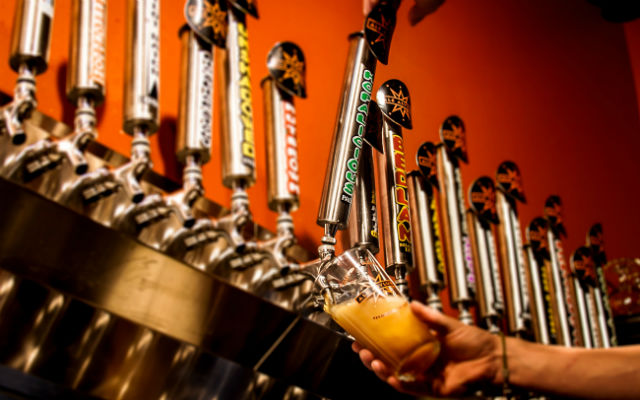
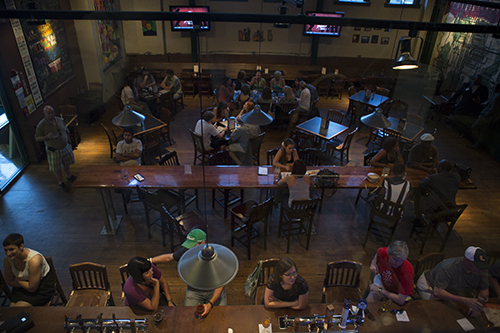
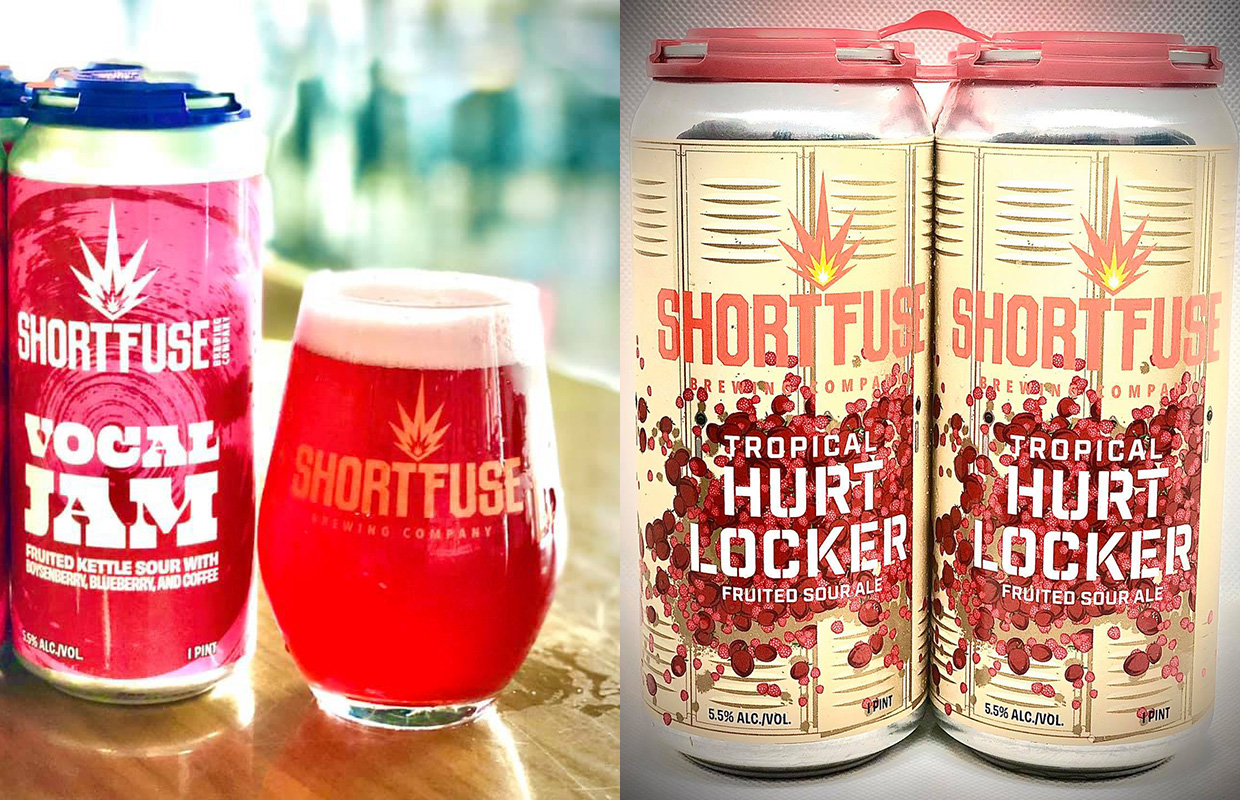
4 Trackbacks / Pingbacks